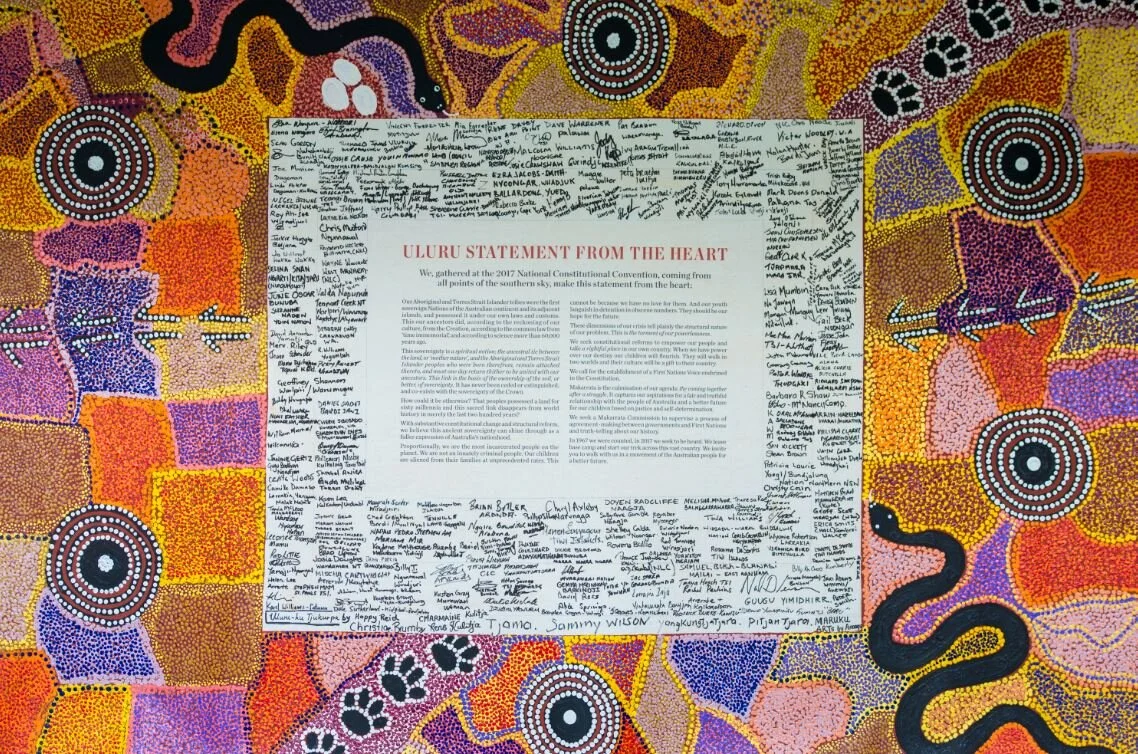Representation is critical for effective governance and law-making, and the recent election gives Australia its most diverse Parliament yet. But there’s more to true voice and representation than photo opportunities. In today’s analysis, Yasmin Poole ((@YasminPoole) of the World Bank (@WorldBank) expands the metric of ‘diversity’ and challenges the government to ensure marginalised communities are fully engaged. This piece originally appeared in Election Watch (@electionwatch_ @Government_UOM).
Read MoreGender equality and the treatment of women have been persistent political and policy issues throughout the 46th Australian Parliament. In today’s analysis, Associate Professor of International Relations Katrina Lee-Koo (@KateLeeKoo), from Monash University (@MonashUni), explores how gender equality and the treatment of women are likely to shape the vote at Saturday’s election.
Read MoreWhile approaches to ensure better legislative decisions for women include such activities as gender responsive budgeting, the most fundamental action would ensure that women are truly representative in Australia’s legislative bodies. In the lead-up to the Federal Election, we are running a series of specific asks for policy change. Today’s piece by Sandy Venn-Brown, Menaka Cooke and Terrie Roberts, all of the Women’s Electoral Lobby (@WELAus) makes the argument for instituting a quota system.
Read MoreEarlier this year, Australians were shocked to hear Brittany Higgins’ story – not only of her alleged sexual assault in Parliament House, but also the lack of a process to report and address her allegations. More recently, Annabel Crabb’s series Ms Represented showcased the historic and continuing barriers to inclusion and respect that women face in Australian politics. In today’s analysis, Josefina Erikson (@Josefinaerikson) of Uppsala University (@UU_PoliSci), shares a summary of her recently-published paper, co-authored with Cecilia Josefsson (@CeciliaJsfssn). It provides a framework encompassing five dimensions, explaining how parliaments fail to operate as gender-sensitive workplaces despite increasing numbers of women working there.
Read MoreThe workplace culture at Parliament House is under intense scrutiny after the revelations prompted by Brittany Higgins’ experiences as a staff member bringing forth an allegation of rape in the workplace, while the wider experiences of women in Australian politics is being highlighted in Annabel Crabb’s Ms Represented which aired its first episode yesterday. In today’s analysis, Leonora Risse (@Leonora_Risse) of RMIT, the Women and Public Policy Program at Harvard (@wapppHKS), and the Women’s Leadership Institute Australia (@WLIAus) discusses toxic workplaces as sites for contests of masculinity, and how that negatively impacts on women and others who do not conform to these norms, with a particular focus on Australia’s political spheres.
Read MoreKathleen Herbert reflects on what needs to change so we can convince women to enter parliament.
Read MoreAlastair Stark, Nivek Thompson (@NivekKThompson) and Greg Marston argue that public deliberation can lead to better policy design by offering something more dynamic than a ‘snapshot’ of public opinion: it can show policymakers how citizens think and justify their decisions.
Read MoreThe Commission for the Human Future (@HumanFutureAU) recently held a groundbreaking webinar on Catastrophic Risk and the Public Good: Toward our Human Future. Hosted by Dr Arnagretta Hunter (@cbr_heartdoc) - a cardiologist and the Human Futures Fellow in the College of Health and Medicine at ANU and chair of the Commission - and featuring Dr Luke Kemp, an expert in catastrophic risk now based at Cambridge, and Dr Millie Rooney from Australia reMADE, the discussion addressed two big themes: threats to humanity and what matters for people in their lives. The conclusions were that community is central to our human future, and that catastrophic risks like climate change, nuclear war and artificial intelligence can be reduced through better democratic representation, through better economics and through a deliberate acknowledgement of the value of caring and importance of community. In today’s post, Dr Hunter explores key lessons from the webinar and explains why the best hope for a better human future lies in concerted effort.
Read MorePeter Martin recently argued that the government’s budget is their true statement of values. As we have watched the Federal Government trying to get onto the front foot to address their ‘woman problem’ over recent weeks, an insight into their values would be helpful. In today’s analysis, Helen Dalley-Fisher of the Equality Rights Alliance (@EraAustralia) explains how the Federal budget is the key document to provide forensic evidence that they mean business.
Read MoreOn the eve of International Women’s Day, allegations of rape by a senior Cabinet Minister, and what many considered a poor response from the Morrison Government, left many feeling drained and depleted. Is this another case of ‘he said, she said’ - which have been portrayed as unresolvable? In today’s important analysis, Louise Richardson-Self (@LVRSelf) of University of Tasmania (@UTAS) provides important insights into testimony and credibility, and what they mean in the Christian Porter case. This article was first published by The Ethics Centre (@ethics_centre), and is republished here with permission. You can view it in its original format here.
Read MoreAs always, before our hard-working moderators and policy whisperers take a year-end break, we are providing you with some summer reading. In today’s blog we summarise our most-read pieces, and also recommend a few pieces that we felt didn’t get the attention they deserve.
Read MoreIn order to truly represent Australia in all its diversity, we also need greater diversity in our politics. Evidence shows that increasing female representation has a very real impact on the legislation that is raised. In Australia, however, while the numbers of women in politics is slowly inching upward, many women have said that engaging in politics come at a cost seldom borne by their male counterparts: Consider, for example, Nova Peris’ recent comments on the racial abuse she endured, or the slander endured by Senator Sarah Hanson-Young.
For International Women’s Day, in today’s post Blair Williams (@BlairWilliams26) of Australian National University provides an overview of her research into the way women Prime Ministers are portrayed in the media, how that denigrates their authority and capability, and the negative impact it is having on increasing female political representation.
Read MoreFew people are aware of co-design’s political roots. The concept first emerged in Scandinavia in the 1970’s through union insistence that workers be included in the major restructuring of their industries as a way of “emancipating workers at the workplace” (p. 145). Central in its philosophy is the tenet to equalise power as a prerequisite for true collaboration. For International Women’s Day, Summer May Finlay (@SummerMayFinlay) of University of South Australia explains why the government has shown bad faith in failing to adopt the full recommendations from the Uluru Statement from the Heart. As long as full citizen rights are withheld from Aboriginal and Torres Strait Islanders, women’s rights will also fail to be achieved.
Read MoreIn what is fast becoming a global trend, the conservative Coalition was not expected to win the election held in 2019. Understanding how they did is critical to ensuring robust democratic systems in Australia. In today’s blog, Kate Griffiths (@_KGriffiths), Tony Chen and Danielle Wood (@DanielleIWood), all of The Grattan Institute (@GrattanInst), provide an analysis of how the record $90 million spent by Clive Palmer’s United Australia Party swayed the outcome of the election and provide insight into much-needed donation reforms. This post first appeared on The Grattan Institute web site; you can read it in its original format here, or read more about the author’s analysis in their related piece in The Conversation.
Read MoreDr Adam Hannah (@adamjhannah; University of Western Australia) draws on his recent article in Policy & Politics to consider the growing prominence of Medicare for All in US politics and what lessons can be drawn for those advocating for systemic change.
Read MoreIn the once separate fields of politics and governance, the narrative is everything. Perhaps more. Mark Kenny from Australian Studies Institute looks how the government controls the storyline across Newstart, refugees and the Uluru Statement from the Heart and concludes it is the ‘back story’ that lends the government legitimacy.
Read MoreResponding to the need for innovation, governments have begun experimenting with ‘design thinking’ approaches to reframe policy issues and generate new policy solutions. But what is new about design thinking and how does it compares to rational approaches to policymaking? Maria Katsonis discusses below.
The article orginally appeared in The Mandarin
Read MoreThe Australian Labor Party recently released a National Gender Equality Strategy, including a record $660 million commitment to end violence against women. As part of our special federal election series Labor’s Shadow Minister for Women, Deputy Leader of the Opposition, Shadow Minister for Education and Training and Member for Sydney Tanya Plibersek (@tanya_plibersek) provides an overview of Labor’s policy commitments. We extended an invitation to all of the major parties; you can read the Greens platform here.
Read More




















